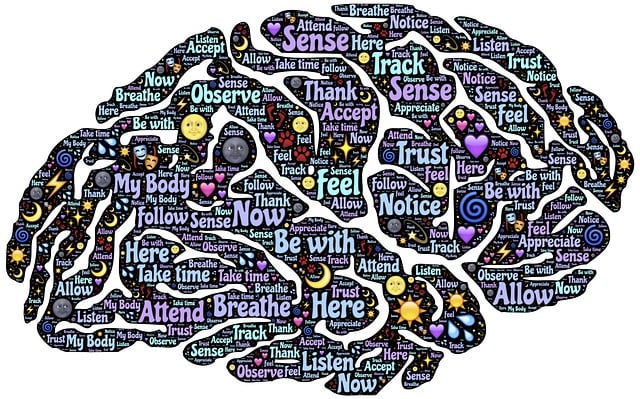Substance abuse in Colorado Springs is driven by biological, psychological, and environmental factors, often linked to underlying mental health conditions. The consequences range from memory loss and impaired judgment to social isolation and legal issues. Prevention focuses on understanding risks, early detection of signs like prolonged anxiety or mood changes, and promoting healthy coping mechanisms. Colorado Springs Anxiety Therapy, through holistic approaches like journaling exercises, equips individuals with stress management tools and emotional resilience. Integrating this therapy into community programs and healthcare provider training can significantly reduce substance abuse rates by targeting mental health issues and building tailored support systems.
Substance abuse poses significant risks, but proactive strategies can mitigate these dangers. In this comprehensive guide, we explore effective risk reduction techniques for substance abuse, focusing on early identification of signs and factors that contribute to addiction.
We delve into the therapeutic benefits of Colorado Springs Anxiety Therapy, a holistic approach designed to address underlying issues. Additionally, discover evidence-based prevention methods, resilience building, and the importance of supportive networks in safeguarding against substance abuse.
- Understanding Substance Abuse and Its Risks
- Identifying Risk Factors and Early Signs
- Colorado Springs Anxiety Therapy: A Holistic Approach
- Evidence-Based Strategies for Prevention
- Building Resilience and Support Systems
Understanding Substance Abuse and Its Risks

Substance abuse is a complex issue that encompasses a range of behaviors characterized by excessive or uncontrolled use of drugs or alcohol. It’s driven by a combination of biological, psychological, and environmental factors, often stemming from underlying mental health conditions like anxiety or depression. In Colorado Springs, where access to Anxiety Therapy services is readily available, understanding these risks is the first step towards prevention and recovery.
The consequences of substance abuse can be severe, impacting not just individuals but their families, communities, and society at large. Short-term effects may include impaired judgment, memory loss, and physical health issues. Long-term repercussions can lead to social isolation, strained relationships, legal troubles, and even death. Building resilience through effective coping strategies and mood management techniques is a key risk reduction strategy. Mental Health Policy Analysis and Advocacy play a crucial role in ensuring accessible resources and support systems for those battling substance abuse disorders.
Identifying Risk Factors and Early Signs

Identifying risk factors and early signs is a crucial step in preventing and mitigating substance abuse. Individuals living in areas like Colorado Springs can benefit from understanding specific indicators that may signal potential issues. For instance, prolonged feelings of anxiety or sudden changes in mood, often linked to underlying mental health conditions, can be precursors to self-medication through drugs or alcohol. Recognizing these early warning signs encourages individuals and their loved ones to seek support from local Colorado Springs anxiety therapy services.
By fostering positive thinking, resilience building, and effective stress reduction methods, it becomes easier to navigate challenging situations without resorting to harmful substances. Encouraging open conversations about mental health, promoting healthy coping mechanisms, and providing accessible resources for therapy can significantly reduce the risk of substance abuse, ultimately leading to a more balanced and fulfilling life.
Colorado Springs Anxiety Therapy: A Holistic Approach

In Colorado Springs, anxiety therapy has emerged as a powerful tool in the fight against substance abuse. This holistic approach goes beyond traditional treatments by addressing the root causes of anxiety and promoting emotional well-being. Therapists in this vibrant community employ various techniques to help individuals develop coping skills that can significantly reduce their risk of turning to substances as a means of dealing with stress or fear.
One effective method is mental wellness journaling exercise guidance, where individuals are encouraged to express their thoughts and feelings through written words. This practice allows for increased self-awareness and provides an outlet for emotions that might otherwise be bottled up. Additionally, Colorado Springs Anxiety Therapy emphasizes emotional well-being promotion techniques tailored to each client’s unique needs, fostering a sense of calm and resilience that can deter the urge to engage in substance abuse. Through these comprehensive strategies, individuals not only gain control over their anxiety but also build lasting coping mechanisms for better mental health.
Evidence-Based Strategies for Prevention

In the fight against substance abuse, evidence-based strategies play a pivotal role in prevention and risk reduction. One effective approach is integrating Colorado Springs anxiety therapy into community programs. This form of therapy addresses underlying mental health issues, often linked to substance misuse, by providing individuals with tools to manage stress and anxiety. By targeting these root causes, therapy can empower people to make healthier choices and reduce the likelihood of turning to substances for coping.
Additionally, healthcare providers in Colorado Springs can enhance prevention efforts through Cultural Competency Training and Burnout Prevention Strategies. Understanding cultural nuances and biases ensures that care is tailored to diverse populations, fostering trust and engagement. Meanwhile, promoting provider well-being through burnout prevention can lead to improved retention and a more consistent delivery of quality care, ultimately contributing to better patient outcomes and reduced substance abuse rates. Confidence-boosting initiatives for both healthcare professionals and individuals at risk can further strengthen these prevention efforts.
Building Resilience and Support Systems

Building resilience is a cornerstone in mitigating risks associated with substance abuse. It equips individuals with the mental fortitude to navigate challenging situations and resist turning back to drugs or alcohol as a coping mechanism. Through Colorado Springs anxiety therapy, for instance, people can learn effective stress management techniques, emotional regulation skills, and healthy coping strategies. These tools empower them to face triggers head-on and maintain sobriety.
Support systems play a pivotal role in risk reduction. Strong social connections offer a safety net during difficult times, providing individuals with an alternative support structure beyond their immediate circle. Community outreach program implementation can foster these connections by creating opportunities for participation and belonging. By integrating self-care practices into their daily routines, individuals can further strengthen their resilience and build supportive communities, thereby minimizing the risk of substance abuse relapse.
Substance abuse poses significant risks, but with a multi-faceted approach, these can be mitigated. By understanding the dangers, identifying risk factors early on, and adopting evidence-based strategies, individuals can significantly reduce their vulnerabilities. The holistic methods offered by Colorado Springs Anxiety Therapy provide a promising avenue for prevention and recovery. Building resilience through support systems further strengthens defenses against substance abuse. Armed with knowledge and proactive measures, communities can create a safer environment for all.














